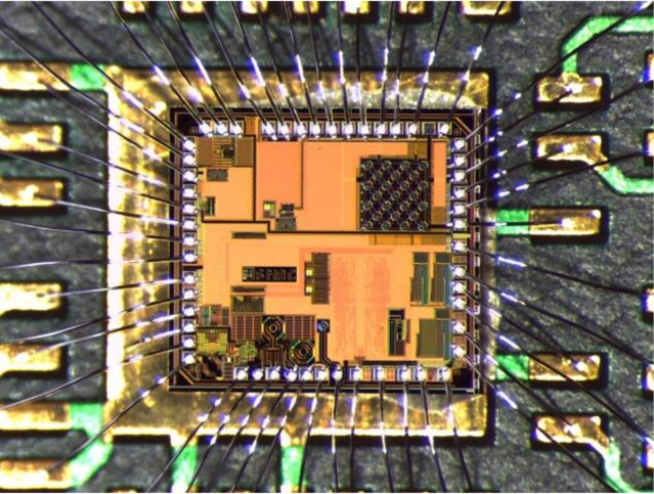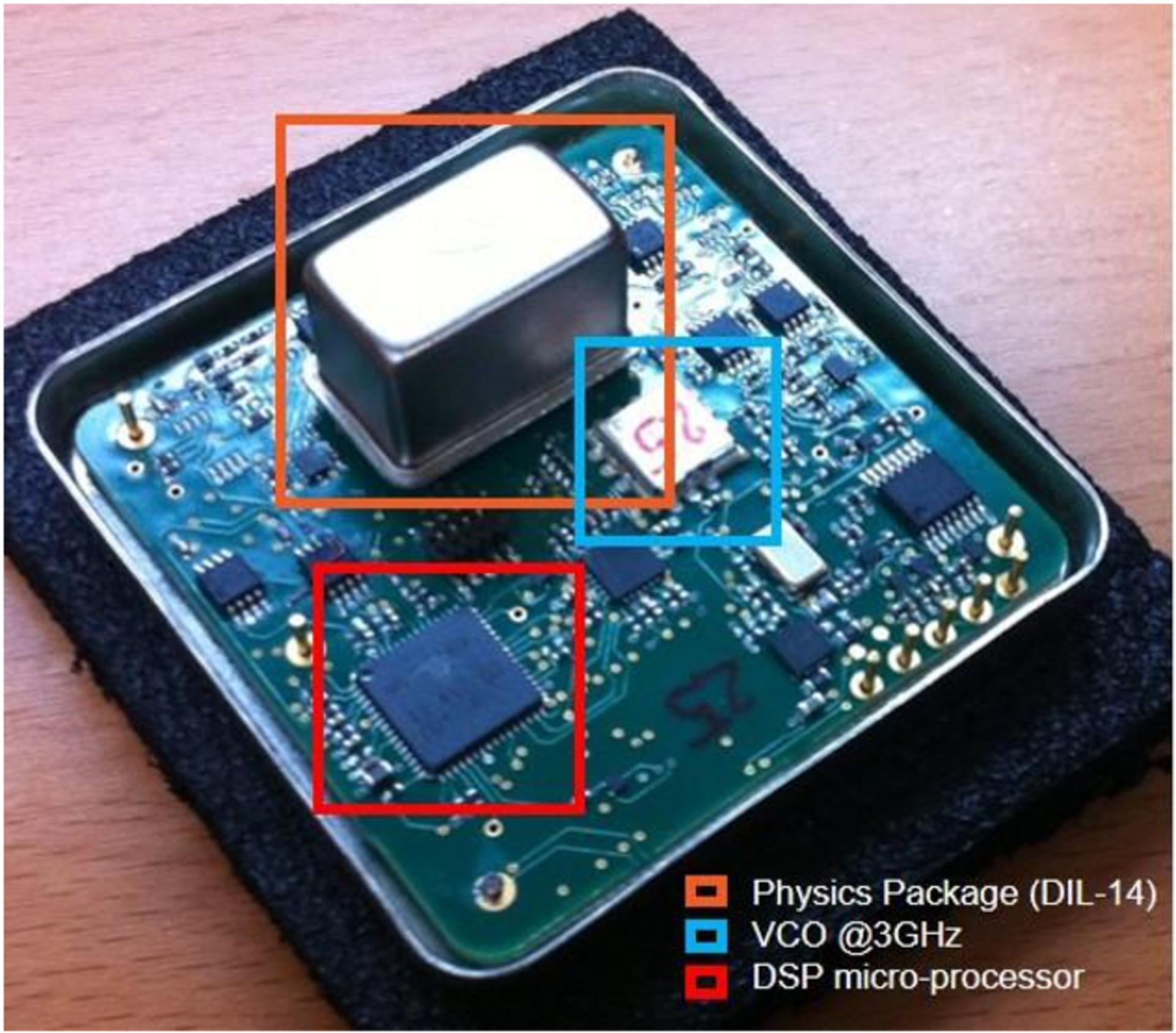Miniature Swiss clock to make telling time in space easier

A tiny atomic clock, just five millimetres across, that requires very little power to run has been developed by a Swiss company to improve the sensitivity of sensors and instruments in space.
The company, Spectratime, developed the clock as part of a GSTP contract to build a timing source that is incredibly precise but uses as little power as possible. A timing source with very low power consumption could drastically reduce battery size, weight and cost for any battery-powered operation that requires precise timing but might not be able to access navigation signals or other external synchronisation sources, e.g. mobile phone networks during GPS outages, sub-marine geological research and Earth Observation sensors and instruments.
The clock was developed using commercially available, off-the-shelf parts. The team also built software to monitor and control the clock before testing the prototype at ESTEC to see how it withstood radiation and changes in temperature
After spending three months in a vacuum, the clock had drifted negligibly from the accurate time and was unaffected by changes in radiation but improvements are still needed to reduce the magnetic sensitivity of the timepiece. It used just 450 mW (about half the power used by a standard clock radio) in the vacuum at -20°C.
Next, the team will rebuild the miniature clock using parts that have already been qualified for space and test how well it can withstand vibrations and shocks. They also hope to use a CSEM ASIC chip that is just 2x2 mm2 to enable the tiny clock to run on even less power – under 30mW.















 Germany
Germany
 Austria
Austria
 Belgium
Belgium
 Denmark
Denmark
 Spain
Spain
 Estonia
Estonia
 Finland
Finland
 France
France
 Greece
Greece
 Hungary
Hungary
 Ireland
Ireland
 Italy
Italy
 Luxembourg
Luxembourg
 Norway
Norway
 The Netherlands
The Netherlands
 Poland
Poland
 Portugal
Portugal
 Czechia
Czechia
 Romania
Romania
 United Kingdom
United Kingdom
 Slovenia
Slovenia
 Sweden
Sweden
 Switzerland
Switzerland


























